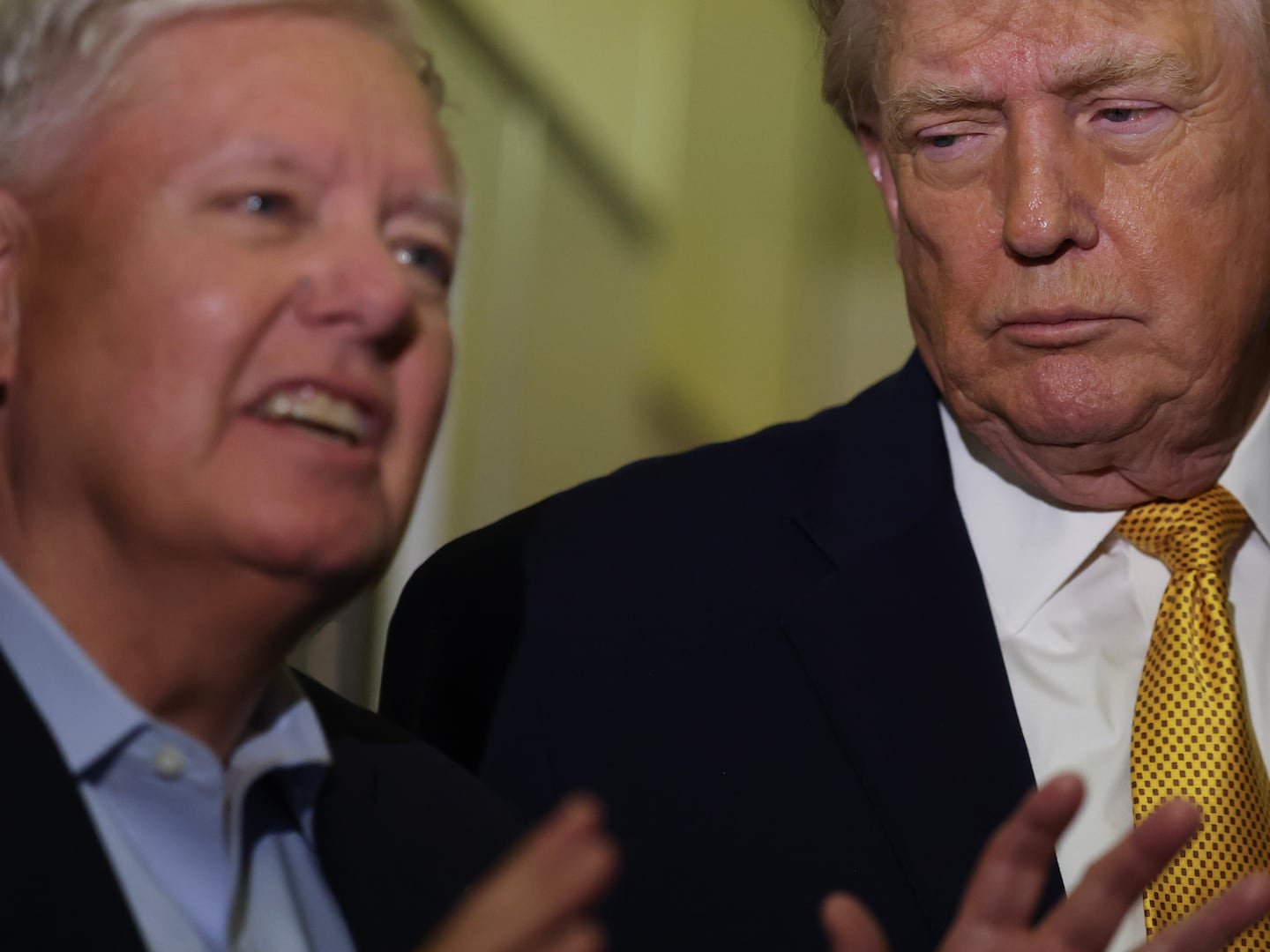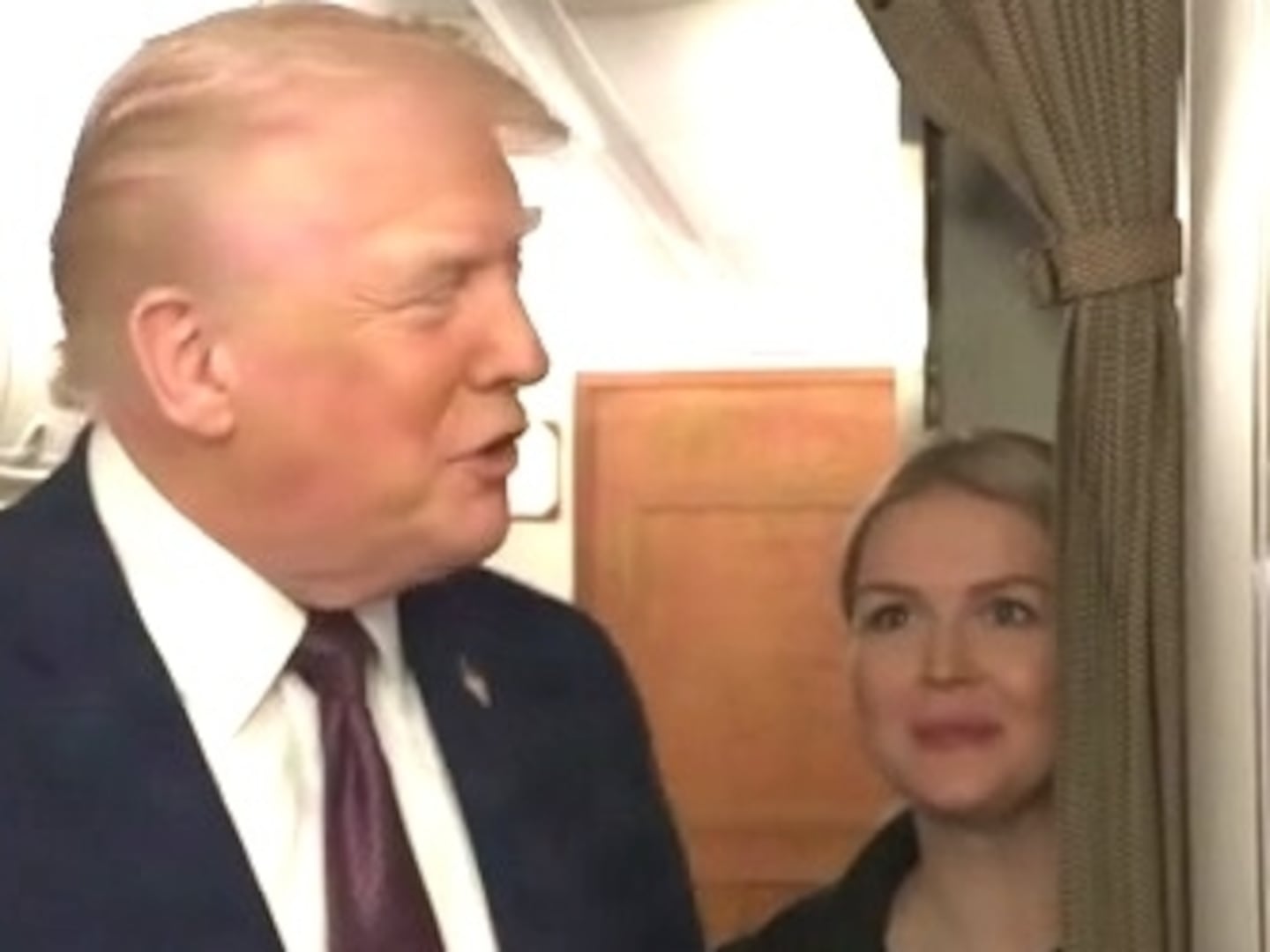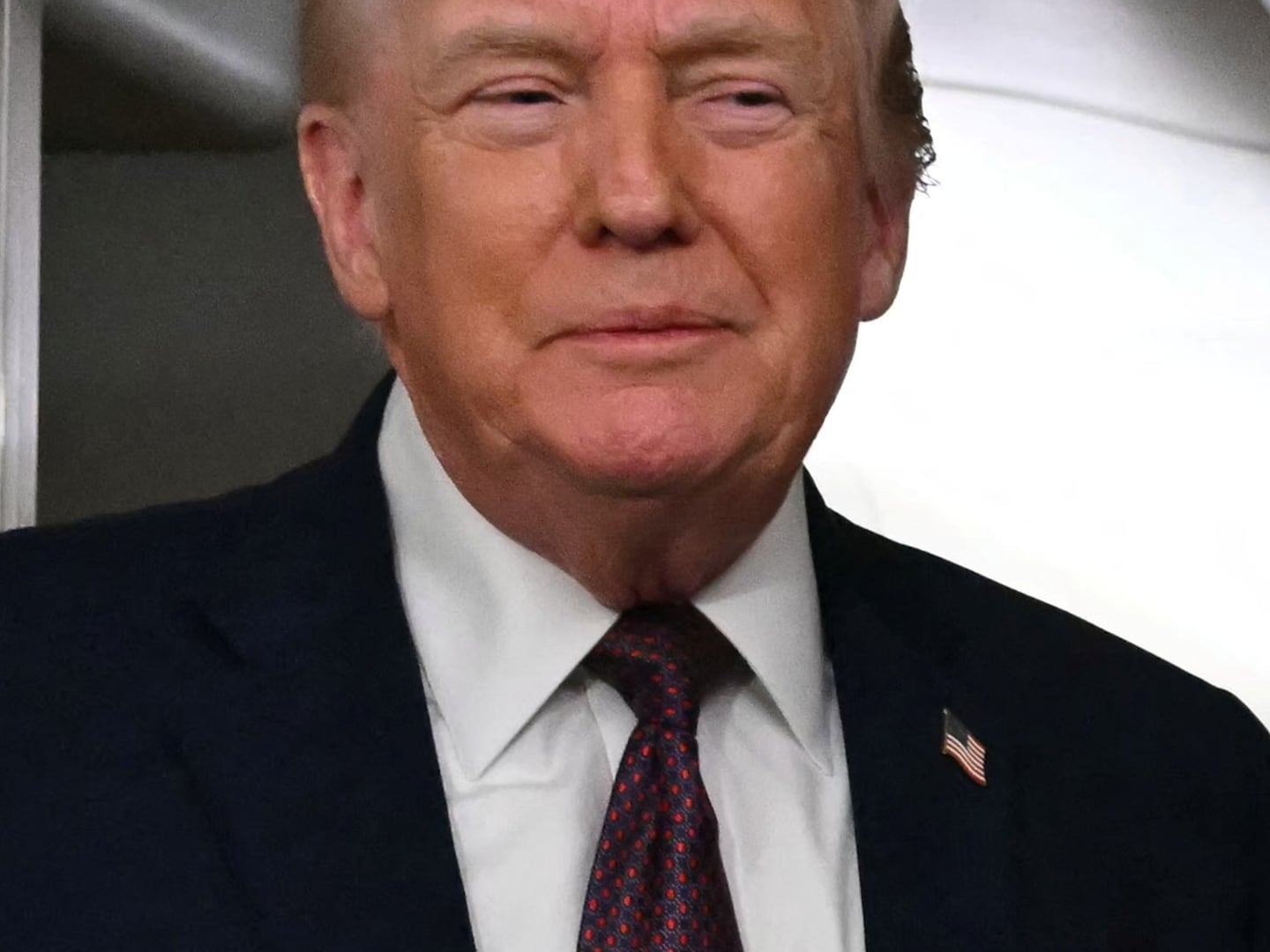To be, or not to be—that is the question when it comes to Tony Soprano, the iconic mob boss brought to wifebeater-wearing, cigar-sucking, head-bashing life by the late James Gandolfini. And, despite The Sopranos’ seven-year absence from the airwaves, a controversy recently erupted over its ambiguous, fade-to-black finale.
A writer at Vox claimed that creator David Chase told her Tony wasn’t dead, which whipped the Internet—that had largely concluded he was whacked in the diner to “Don’t Stop Believin’”—into a frenzy. Hell, the stats nerds over at FiveThirtyEight even ran the odds of whether that Big Italian Teddy Bear would be alive today regardless. The online mayhem forced the lumbering character’s own Victor Frankenstein to issue a statement refuting the story.
All this hullaballoo is, more than anything, a testament to the enduring legacy of The Sopranos—a show that many, including this writer, regard as not only the best television show ever, but one of the greatest pieces of art to emerge in the last 30 years; an engrossing exploration of the ties that bind that, over six season and 86 episodes, changed the face of television forever, ushering in a small-screen renaissance. There would be no Breaking Bad, Mad Men, or True Detective if it wasn’t for The Sopranos.
At the 2014 Venice Film Festival, I sat down with the affable-yet-stoic Chase, who’s serving as a festival juror. On a terrace above the opulent Palazzo del Cinema, a site boasting breathtaking views of the Adriatic Sea, we discussed the recent fuss, Sopranos memories, his upcoming HBO miniseries, and much, much more.
I wanted to ask you about the Vox story, which claimed that you said Tony Soprano was still alive, because when I first read it I immediately smelled bullshit. The whole way it was packaged, and the fact that it had no explanation before or after made it come off like this disembodied quote that was taken out of context.
Yeah. You’re a journalist, and I’m going to say this to you: This has taught me, for good and all, not to befriend any journalist. I got too friendly with her. And I kept saying to her, “You know, this can’t be good that you and I talk to each other and have lunch and coffee. Something’s wrong here,” and she’d say, “No, no, no.” And she meant that—she wasn’t setting me up. It seems like, poor Dave, there’s no way he can win. I don’t recall that conversation. I’m sure it happened, but I don’t recall it, and if I did say that, I believe I was probably thinking about something else. What do you want to know about it?
Well, your response to the story was interesting. You issued a statement saying, “Whether Tony Soprano is alive or dead is not the point. To continue to search for this answer is fruitless. The final scene of The Sopranos raises a spiritual question that has no right or wrong answer.” So, I gotta ask: What is the “spiritual question” that it raises?
[Long Pause] I’ll say this: The question is, to be really pretentious, what is time? How do we spend our really brief sojourn here? How do we behave, and what do we do? And the recognition that it’s over all too soon, and it very seldom happens the way we think. I think death very seldom comes to people the way they think it’s going to. And the spiritual question would be: “Is that all there is?”
Did you toy with different endings?
No. There was an earlier version but it was basically the same thing, it just happened slightly differently.
I know Twin Peaks was canceled prematurely, but did you ever consider going David Lynch and making a film following the end of The Sopranos’ TV run?
The Sopranos movie? Sure, I considered it. Another way of putting it is that I’m always considering it and I’m always thinking about it—but certainly not early on, no.
At this point in the interview, the actor Tim Roth spots David, walks up to us, and says hi to David, shaking his hand—and then mine. Nice chap. He’s serving on the jury with David, and is off to see a French film. “I don’t even know what it’s about!” he says with a smile and a shrug.
The Sopranos came before people started writing recaps of every show.
I remember we got notes from Salon every Monday and I was like, “I’m not used to this!” But I’ve said publicly that I don’t really get it. Recaps? But… what can I say about that ending? I guarantee you that with everything I’ve said to you just now, people will find fault with what I’ve said, or people will say, “That’s a cliché.” So be it! So, is he dead or is he alive? Paulie says in the beginning of the episode, “In the midst of life, we are in death. Or is it: in the midst of death, we are in life?” I don’t know what else to say.
Do you feel any competition with The Wire and Breaking Bad? Those two, along with The Sopranos, are really the “Holy Triumvirate” of TV—the three shows that always come up in the “greatest TV show of all-time” conversation.
I really don’t. I feel a little competitive with Mad Men, because Matt worked with me, but I also think it’s just so spectacular. So I consume that. I consume Boardwalk Empire.
Breaking Bad?I consumed Breaking Bad, but it came too late, and I got into it too late. You really need to see the whole thing and it’s a big investment. My daughter loved Breaking Bad and she said, “Dad, you’ve gotta see it.” And my producer, Mark Johnson, produced Breaking Bad, and we’re now working on our second movie together, and I feel a little embarrassed to tell him I haven’t seen the whole thing.
What’s the second film?
We don’t know that it’s happening. It’s called Little Black Dress, and it’s at Paramount. It’s about a female veteran of Afghanistan who comes back injured, and she has to cope with her injury, and finding a new career. I’m directing, and wrote the screenplay.
How about True Detective? Did you check that one out?
You know, that’s one that I need to revisit. I watched the first two.
Couldn’t get into it?No… and I don’t know, it may not be the show. Things go on in your life. But I do want to revisit that. I’ve had some people tell me, “It goes sort of downhill after the first two,” but I don’t know if it goes uphill, downhill, whatever. I need to revisit. But that’s at least approachable, because it’s eight episodes. But Breaking Bad is what, 90 episodes? How can you do that and read books and go to the movies? To me, it’s hard.
It’s amazing that you have some of the best filmmakers, like Steven Soderbergh and David Fincher, gravitating to television. If you'd said that would happen back when The Sopranos premiered, people would've called you crazy.
And Soderbergh is really invested in that series. The Sopranos Blu-Ray is coming out in November—I thought it had been out for years—and they put together this documentary of people talking about The Sopranos. Steven was gracious enough to do it, and his thoughts were fantastic.
You’re largely responsible for ushering in this “Golden Era” of television we’re experiencing now, but I read a quote where you once said you “loathe and despise” the majority of what’s on TV.
I did say that, but that was in ’97 or ’99, and I meant network television, and that I despised working there. Even though I worked for very talented people, and with very talented people, I did hate the compromises of network television.
Because The Sopranos was originally set up at Fox with Anthony LaPaglia starring, right?
There was no cast attached to it, and then he came along and that didn’t work. But Fox never even gave it a shot. I wrote the script, and they never even talked about it.
It’s amazing when you hear about these iconic shows getting turned down by networks. Mad Men apparently got turned down everywhere too, including HBO. Did you try to convince HBO to pick up Mad Men, since Matt Weiner worked on The Sopranos?
Yeah. They never called me! I called them and said, “Here’s something you should really get behind. I think this is great.” And I got a call a month and a half later asking, “Would you executive-produce it?” And I said, “No.” And Matt actually asked me to direct the pilot, and I wasn’t sure about that. I just didn’t want to do any more series television. And then… nothing. I’d been doing television for years, but my career goal was to be in movies, and I was very worn out after The Sopranos. I had a great time doing it, but it was enough.
And you initially conceived The Sopranos as a film. How was it going to play out? I can’t even imagine it all compressed into two hours.
The idea, yeah. I guess now it’s hard to imagine! It was going to be the first season. Tony would put his mother in a retirement community, she got angry and sided with Uncle Junior, his therapist realized that his mother was his enemy before he did, and his mother and his uncle tried to have him killed, they failed, and then he went to smother his mother with a pillow. That was essentially our 13 episodes, only he didn’t kill the mother with a pillow.
I read that you turned in the pilot for The Sopranos in early 1997, and then HBO really vacillated for quite some time before ordering it to series.
Yeah, they did. I kind of self-edit that out of the history, but they did vacillate for quite a while. I just heard recently that they just really didn’t have the money, and they were afraid of plunking that much money down. It did take a long time. But in the end, they went for it, made a really brave move, and I have nothing but gratitude and respect for them. And if HBO didn’t buy it as a series, I was going to turn it into a feature.
James Gandolfini would apparently get calls from wise guys while the show was on the air offering tips. Apparently one was for him to never wear shorts. Did you get any strange calls from wise guys?
[Laughs] Did they tell him? I know they told somebody. But no, I wasn’t contacted, thank god. But we did hear the thing: “The Don doesn’t wear shorts.” It’s funny you mention that. James didn’t tell me about any other calls he got from wise guys.
There are, by my count, 27 actors from Goodfellas that appeared on The Sopranos. And I read that you tried to cast Ray Liotta as Ralphie?
We did. He was on location in Virginia and I went down to talk to Ray about it. I was very conscious, though, of trying not to overdo it. But I guess there are a limited number of Italian-American actors around. Frank Vincent initially tried out for Paulie and for Uncle Junior, and he was great and I wanted to hire him, but I thought, “We just can’t do that.” Lorraine [Bracco] tells the story that she’s the one who said, “I don’t want to play the wife, I want to play the therapist,” but it wasn’t exactly like that. I was the one who said, “We can’t have her play the wife again.” So maybe we were both thinking the same thing.
It’s funny. On the flight to Venice, they offered one Sopranos episode and it’s arguably my favorite: “College,” where Tony takes Meadow up to visit colleges in Maine—including my college, Colby—and ends up whacking Fabian Petrulio, who’s in witness protection. Meanwhile, Carmela has an erotic religion-tinged flirtation with Father Phil back at the house.
They went to visit Colby! Right. We shot that in New Jersey at Drew. I wanted my daughter to go to Colby—that’s what we based it on—and she was 17 at the time, and she came back and said, “No… they said there’s only one good restaurant in town.” And that was that for her.

So you didn’t strangle anyone while you were up there?
No, I didn’t. I was going to strangle her! But I didn’t. [Laughs]
I was speaking recently to Patricia Arquette about her epic fight with Gandolfini in True Romance. Was that the film that brought him to your attention?
I had never seen him in True Romance. I saw him in Get Shorty. But our casting department—Georgianne Walken and Sheila Jaffe, suggested him. They said, “Don’t you know Jim Gandolfini?” And I said, “No… vaguely.”
Gandolfini, as a person, really does resemble the character of Tony Soprano—possessing that tenderness underneath the rough exterior that was so central to the character.
Well, he is Tony Soprano. Like all great actors, he half-invented that; it’s not that he resembled the character—he gave life to it. If it weren’t for him, Tony Soprano would’ve been a different kind of character, and probably not as successful, in terms of the business. He co-created that character. He’s the author.
One of the best Sopranos lines is the one in “Pine Barrens,” when the Russian is loose in the woods and Paulie gets the call from Slava but can’t make out what he’s saying, and tells Christopher, “He killed 16 Czechoslovakians. And he’s an interior decorator.” And then Christopher goes, “His place looked like shit.”
[Laughs] People love that line!
Do you have favorite Sopranos moments?
Oh yeah, I do. Probably my favorite is where Tony and Bobby Bacala are sitting in the diner, and they begin talking about 9/11, Quasimodo, and Nostradamus.
My three favorite episodes are probably “College,” “Pine Barrens,” and “Amour Fou.”
Oh, you like “Amour Fou!” Not a lot of people get that one. That’s the one where Patsy Parisi tells Gloria he’ll be “scraping her nipples off these fine leather seats,” right? [Laughs] And then we had Bob Dylan sing “Return to Me” especially for us. And the fight over the slashed tires. I like that one a lot, too.
As a viewer, it was tough to see Christopher go. He was sort of the Jesse to Tony’s Walter White—the conscience.
Yeah. But it went on for so long with him. I began to feel like Tony Soprano, as a crime boss, if he had someone there who could put him away for life and who was such a junkie and so up and down—because he was a threat for a long time—I couldn’t justify it any longer, even though we loved their relationship.
What were the biggest hurdles for you on The Sopranos as far as storylines to tackle, or storylines to wrap up?
No, I couldn’t say there were any. The biggest hurdle when you’re making a television series is just making it fresh every time year after year without “jumping the shark.” I used to tell the writers, “The first five ideas we should throw out, because we’ve seen ’em before.” And then we would try to get something different every time. But there wasn’t one particular storyline that was difficult.
I read that Steve Buscemi signed on for two seasons as Tony B., but then you whacked him after one because you felt his character had run its course?
Oh no, it wasn’t that. I didn’t foresee it coming, but when we got to breaking the story at the end of Season 5, it became apparent that, realistically, Phil Leotardo could not let Tony Blundetto live. There could be no accommodation of that guy—in terms of human behavior and the rules of Italian-American organized crime. We had a two-day argument in the writer’s room about it. One person said, “Well, he didn’t take it personally. He’s a businessman. It’s business!” And finally, we just realized it needed to happen, so I broke the news to Steve. He took it like a man. I said, “You’re not going to go in a wood chipper, but you are going to go.”
I read that you’ve been developing a miniseries for quite some time—A Ribbon of Dreams, for HBO.
It’s been about five years. Finally, I’ve started to really write it. I wrote some, but threw it away because I didn’t like the direction it was going. But for the last three to four months, I’ve been writing it. As a writer, sometimes you hit a hot streak and you just go. I’m really enjoying it. I don’t know if it’s any good because I haven’t read it over. I talked to [HBO president of programming] Michael Lombardo recently, and originally they wanted it as a series, but I pitched it as a miniseries and said I wanted the first two hours to be a feature. For business reasons, they couldn’t get their heads around that. It’s been going on for so long, the business has changed, so Michael Lombardo said, “Just write it. If it’s four hours, it’s fine, if it’s a series, it’s fine.” And they had a good experience with True Detective, so I’m just going to write it and see what it becomes.
It’s about the really early days of Hollywood. In the first episode, you meet Raoul Walsh and Gloria Swanson and Victor Fleming, who directed The Wizard of Oz. It’s about two very young guys who were hot at that time but, through personality deficits, bad luck, and bad career choices, have been forgotten. It took me a long time to really get it cranked up, but now I am.





